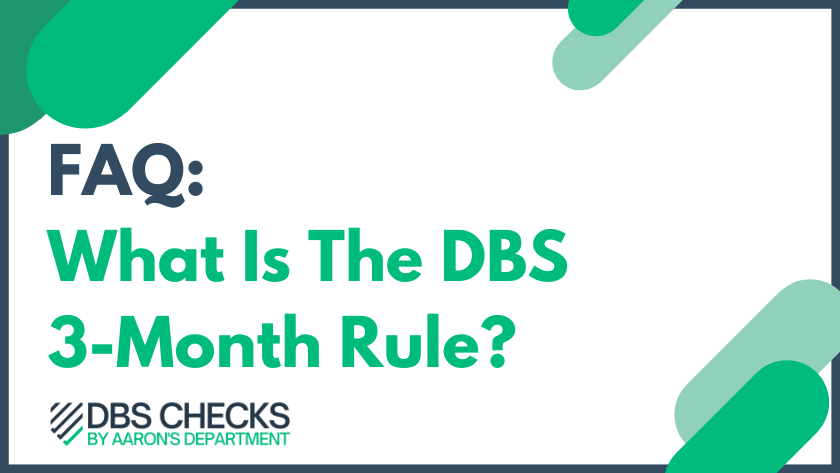So what is the 3-month rule for DBS Checks? According to the Department for Education’s “Keeping children safe in education” 2023 guidelines (pages 59 onwards), if a member of staff is away from work for over 3 months and wasn’t working at another school in the meantime, then before resuming work they must undergo a new Enhanced DBS check – as if they were a new hire.
What Is The 3-Month Rule For DBS Checks? – Exceptions
The only exception to the 3-month rule does not apply to 16–19 Academies, Special Post-16 institutions and Independent Training Providers. For such organisations, the staff-member’s initial Enhanced DBS certificate from the beginning of their employment will suffice.


What Is The 3-Month Rule For DBS Checks? – Tips & Tricks
The DBS 3-month rule can be a real nuisance because it means paying for another DBS check, and they’re not cheap! It particularly affects temporary staff, volunteers, and exam invigilators. There are a couple of ways to get around the 3-month rule, however, which we’ll go over here:
Training Days
Hold paid training days to break up the 3-month absence period. For example, if your invigilator attended a training session after 70 days of absence, it would reset the countdown on their 3-month absence.
The Update Service
By registering staff on the DBS Update Service, you can keep their DBS checks up-to-date. Here’s how it works:
You can check each applicant’s subscription online to see if there have been any changes to their criminal record. If there hasn’t, you can accept their existing DBS check as long as it’s the correct level of check required for the role. If there has been a change to the record, a new DBS check is required before the subscriber can start work.
The DBS Update Service is hosted by the government and costs £13 a year, as well as the price of the initial DBS check. If you have staff who need regular DBS checks, then the Update Service is a cheaper alternative.


Summary: What Is The 3-Month Rule For DBS Checks?
The 3-month rule applies to staff working in schools. If they stop working at the school for more than 3 months and don’t work at another school in the meantime, then they will need a new DBS check upon resuming work.
This is expensive and inconvenient, but it can be avoided by subscribing staff to the DBS Update Service, or resetting the 3-month period with a day of work, for example a training day.
Forward someone this article!
Further Reading
If you’ve found this FAQ post helpful, you might also want to read these:
- Guide to DBS checks for contractors working in schools
- Getting DBS checks for staff in schools
- Ofsted’s DBS check requirements
About The Author


Kellie Dawson
Kellie is our in-house legal expert when it comes to DBS checks. With a background in the legal sector, she has become a recognised authority in this area.
